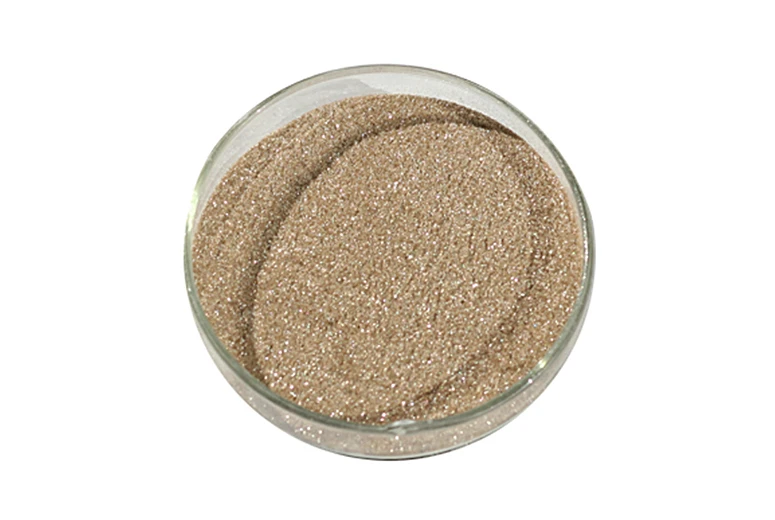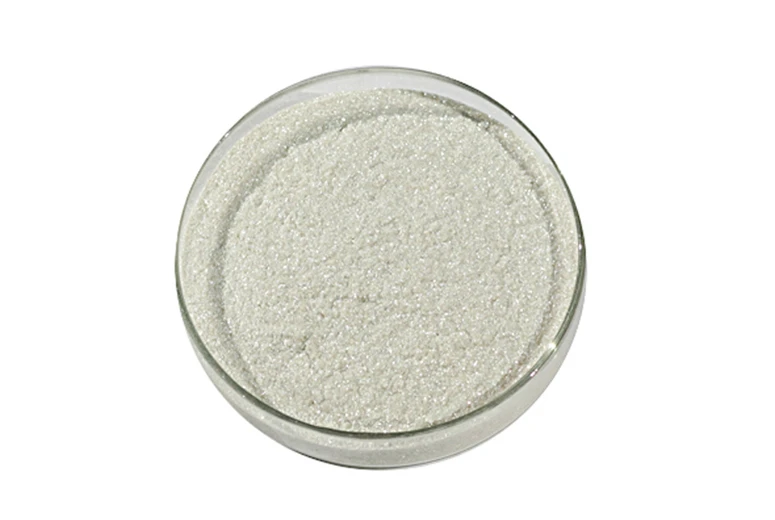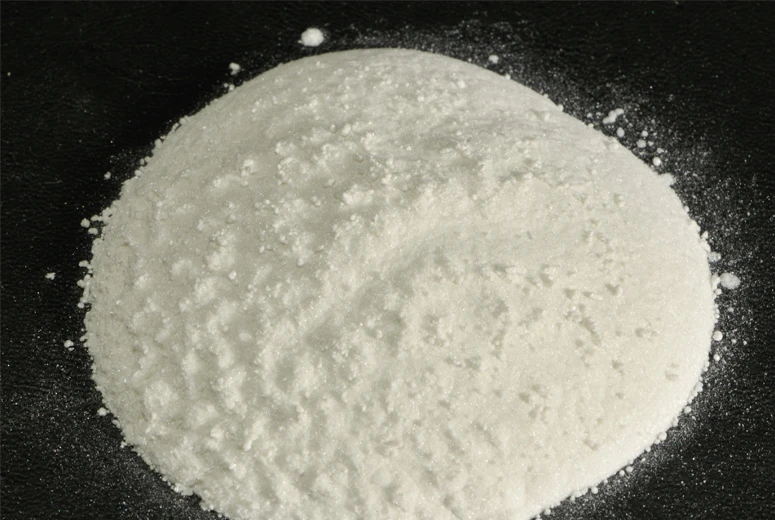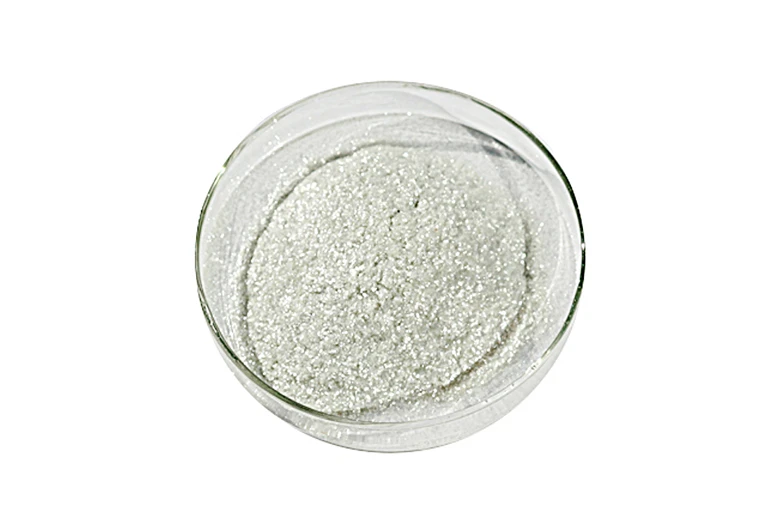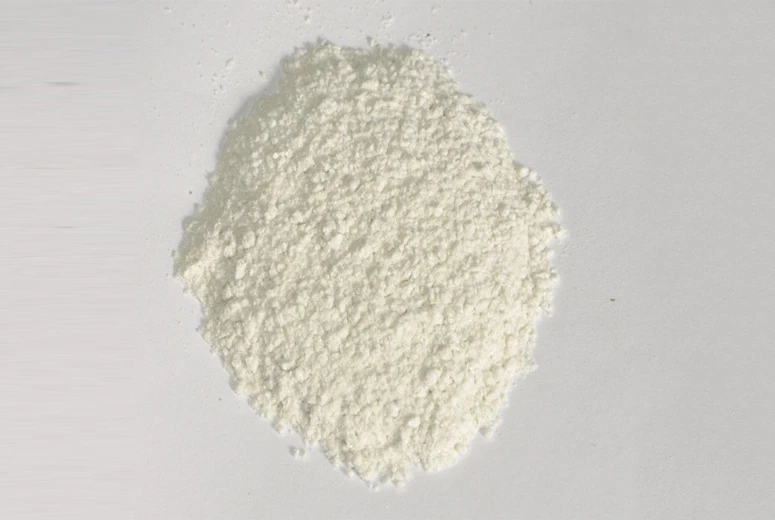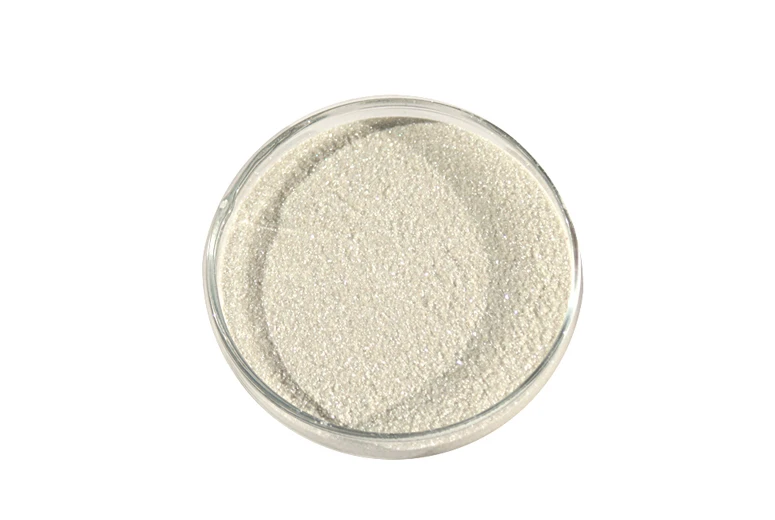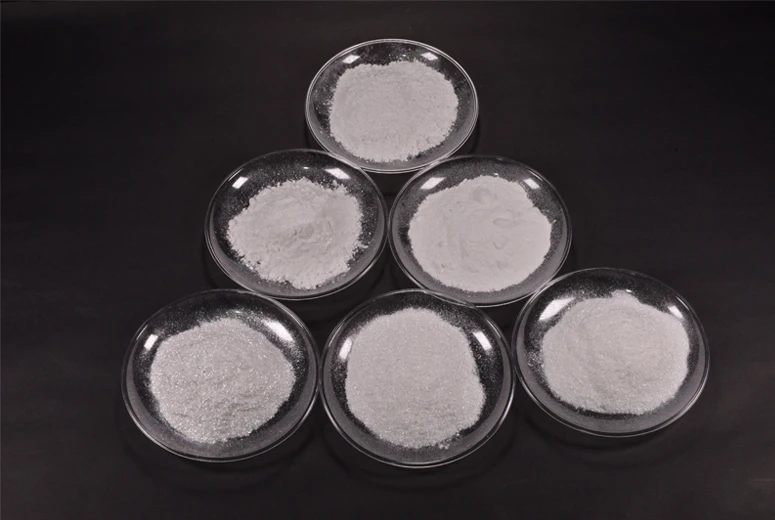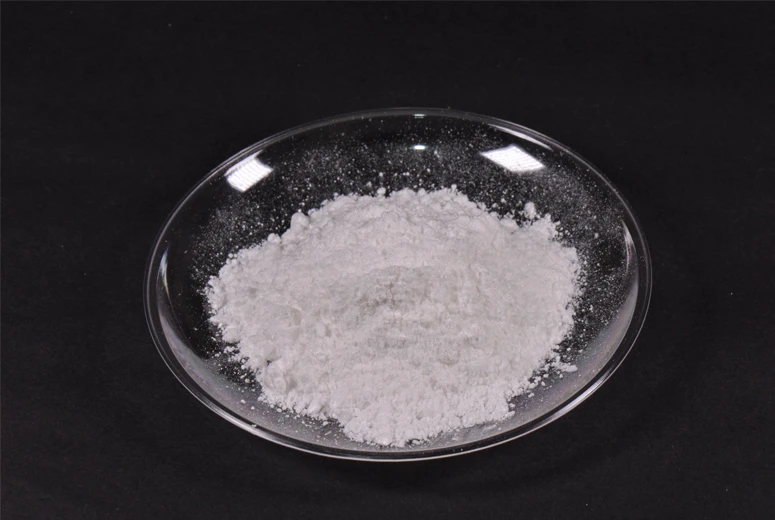60-D Muscovite Mica: High-Performance Electrical Insulation
Navigating Industrial Excellence: The Strategic Role of 60-D Muscovite in Modern Engineering
In the demanding landscape of contemporary industrial applications, the selection of advanced materials is a critical determinant of operational longevity, performance efficiency, and overall system reliability. As global industries accelerate their drive towards sustainable and high-performance solutions, the material science sector continuously innovates to meet evolving technical challenges. Among these innovations, 60-D Muscovite emerges as a material of profound significance, distinguished by its exceptional properties and versatile application profile. This unique mica product is not merely a component but a strategic enabler for systems operating under extreme conditions, including elevated temperatures, corrosive environments, and high-pressure settings. Its strategic importance is amplified by current industry trends emphasizing energy conservation, reduced maintenance cycles, and enhanced safety protocols across sectors such as petrochemicals, metallurgy, power generation, and sophisticated fluid handling systems. The increasing demand for materials that can withstand rigorous operational stressors without compromising structural integrity or functional efficiency positions 60-D Muscovite at the forefront of engineering material advancements. Its inherent dielectric strength, thermal stability, and chemical inertness make it an indispensable choice for critical insulation and sealing applications where conventional materials often fail to meet stringent performance benchmarks. This comprehensive exploration delves into the intricate facets of 60-D Muscovite, dissecting its manufacturing prowess, technical specifications, diverse applications, and the strategic advantages it offers to B2B decision-makers and technical specialists. Understanding these attributes is paramount for optimizing material selection, thereby fostering innovation and achieving unparalleled operational excellence in complex industrial ecosystems.
The prevailing global industrial trends underscore a fundamental shift towards materials that offer not just performance but also sustainability and cost-effectiveness over their lifecycle. In this context, 60-D Muscovite provides a compelling value proposition by significantly extending the service life of critical components, reducing the frequency of costly downtime, and minimizing energy losses through superior insulation. This material’s unique crystalline structure and intrinsic properties contribute to its unparalleled resistance to electrical breakdown and thermal degradation, making it ideal for high-voltage and high-temperature environments. Industries are increasingly seeking robust alternatives to traditional insulators and sealing compounds that often degrade under severe operating conditions, leading to premature equipment failure and substantial operational expenditures. The adoption of 60-D Muscovite aligns perfectly with the objectives of modern engineering, which prioritizes resilience, efficiency, and long-term economic viability. Furthermore, its non-toxic and environmentally stable composition contributes to safer working environments and compliance with stringent environmental regulations, adding another layer of strategic advantage for industries committed to responsible manufacturing and operation. This article aims to provide an authoritative perspective on why 60-D Muscovite is not just a material choice but a strategic investment for companies striving for peak performance and sustainable growth in a highly competitive global market.
Unpacking Technical Parameters: The Core Properties of 60-D Muscovite
The exceptional performance profile of 60-D Muscovite is directly attributable to its meticulously controlled technical parameters and inherent material composition, which set it apart from conventional insulating and sealing materials. Derived from naturally occurring muscovite mica, the 60-D designation typically refers to a specific grade or processing standard that ensures optimal dimensions, purity, and structural integrity tailored for high-demand industrial applications. This material is primarily composed of potassium aluminum silicate, characterized by its distinctive lamellar, or layered, crystalline structure. This layered atomic arrangement grants muscovite its characteristic flexibility, transparency, and most importantly, its remarkable dielectric strength and thermal stability. The manufacturing process refines this natural mineral to enhance these properties, making it suitable for precise engineering requirements where uniformity and consistency are paramount. Key technical parameters include its impressive thermal endurance, often exceeding 500°C (932°F) for continuous operation and significantly higher for intermittent exposure, far surpassing the capabilities of many organic or synthetic insulating compounds. Its dielectric strength, typically in the range of 100-200 kV/mm, ensures reliable electrical insulation even under high voltage stresses, preventing arcing and electrical breakdown. Furthermore, 60-D Muscovite exhibits low thermal conductivity, making it an excellent thermal barrier, and high volume resistivity, which minimizes leakage currents. These properties collectively contribute to its suitability for applications requiring robust electrical and thermal isolation.
Beyond its electrical and thermal characteristics, 60-D Muscovite boasts significant mechanical strength and chemical inertness. It is resistant to a wide array of chemical agents, including acids, alkalis, and solvents, which is critical for its use in harsh chemical processing environments and ensures a prolonged service life without degradation from chemical attack. Its high tensile strength and compressive strength, despite its layered structure, allow it to withstand significant mechanical stresses encountered in demanding industrial installations. The material's specific gravity, typically around 2.8, indicates a relatively high density that contributes to its robustness. Moreover, its non-combustible nature is a vital safety feature in high-temperature applications, preventing fire propagation and enhancing operational safety. The precise control over particle size, thickness, and surface finish during the processing of 60-D Muscovite further refines its performance for specific applications, such as ultra-thin films for capacitors or thicker sheets for furnace insulation. Adherence to strict quality control standards, often including ISO 9001 and specific material performance standards like ASTM D748, ensures that each batch of 60-D Muscovite consistently meets the declared specifications. Understanding these detailed technical specifications is fundamental for engineers and procurement specialists to accurately assess material suitability and predict performance in complex operational scenarios, thereby minimizing risks and optimizing system design for maximum efficiency and durability.
Key Technical Specifications of 60-D Muscovite
| Property | Typical Value / Range | Test Standard (Typical) |
|---|---|---|
| Chemical Formula | KAl₂ (AlSi₃O₁₀)(OH)₂ | N/A (Compositional) |
| Continuous Operating Temperature | Up to 550°C (1022°F) | ASTM D150 / IEC 60216 |
| Dielectric Strength (per 1mm thickness) | ~150-200 kV/mm | ASTM D149 / IEC 60243-1 |
| Volume Resistivity (at 25°C) | > 10^14 Ω·cm | ASTM D257 / IEC 60093 |
| Density / Specific Gravity | 2.7 - 2.9 g/cm³ | ASTM D792 |
| Thermal Conductivity | 0.4 - 0.7 W/m·K | ASTM E1225 |
| Compressive Strength | ~200-300 MPa | ASTM D695 |
| Water Absorption (24h) | < 0.1% | ASTM D570 |
| Hardness (Mohs Scale) | 2.5 - 3 | N/A (Standard Mineralogy) |
Precision Engineering: The Manufacturing Process of 60-D Muscovite
The production of high-grade 60-D Muscovite involves a sophisticated multi-stage manufacturing process that transforms raw mica ore into a precisely engineered material ready for demanding industrial applications. This intricate process ensures the consistent purity, mechanical integrity, and specified electrical and thermal properties essential for its intended use. The journey begins with the meticulous sourcing of high-quality muscovite mica blocks from carefully selected geological deposits, often renowned for their large crystal sizes and minimal impurities. Once extracted, the raw mica undergoes initial sorting and cleaning to remove gangue minerals and surface contaminants. This crude mica is then subjected to a splitting process, where skilled technicians manually or semi-automatically cleave the mica blocks along their natural cleavage planes into progressively thinner sheets. This step is crucial as it leverages muscovite's inherent lamellar structure, ensuring uniform thickness and minimizing defects that could compromise dielectric strength. Following splitting, the sheets are carefully graded based on their size, thickness, flatness, and visual defects, adhering to stringent quality benchmarks such as those outlined by ASTM D351 for natural mica blocks.
Subsequent stages involve advanced processing techniques to further refine the 60-D Muscovite sheets. Depending on the final product form required—whether flexible sheets, precision-punched parts, or custom-machined components—the mica undergoes processes such as precision cutting, stamping, or even CNC machining for complex geometries. For instance, in applications demanding precise dimensions and tight tolerances, CNC machining ensures unparalleled accuracy and repeatability. For bonded mica products, mica flakes are carefully mixed with high-temperature resistant binders (e.g., silicone or epoxy resins) and then pressed under high temperature and pressure to form rigid or flexible sheets, plates, or tubes. The choice of binder and pressing parameters is critical, influencing the composite's mechanical strength, thermal rating, and electrical properties. Throughout these stages, rigorous quality control measures are implemented. This includes visual inspections for flaws, dimensional checks using precision gauges, and material property testing. Electrical tests, such as dielectric strength and volume resistivity assessments, are performed according to standards like IEC 60243-1 and ASTM D257, ensuring that the finished 60-D Muscovite product meets or exceeds performance specifications. Thermal stability is verified through continuous high-temperature exposure tests, simulating actual operational conditions. The cumulative effect of these meticulous processes is a high-performance material that offers exceptional durability and reliability, significantly extending the service life of equipment and reducing maintenance frequency in industries ranging from aerospace and automotive to heavy industrial machinery.
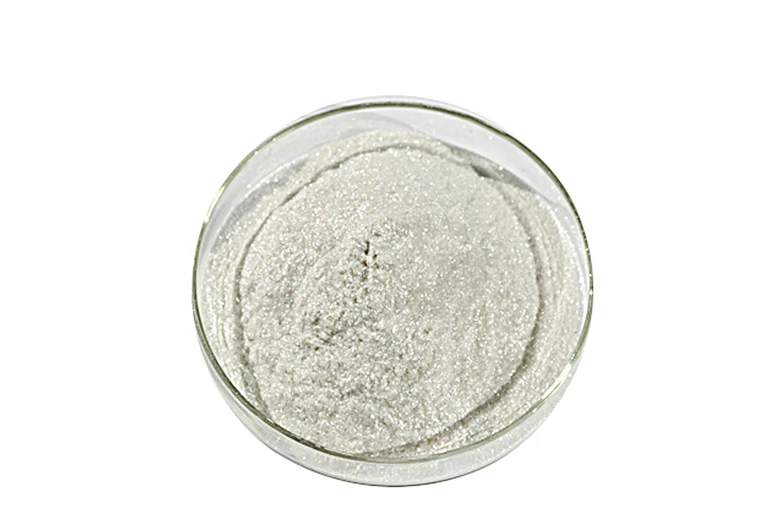
The final inspection phase for 60-D Muscovite is comprehensive, encompassing not only the physical and electrical attributes but also adherence to environmental and safety standards. Products destined for specific industries, such as medical devices or food processing equipment, might also undergo additional certifications like FDA compliance or RoHS directives, ensuring they are free from hazardous substances. Traceability is maintained throughout the production chain, from raw material sourcing to the final packaging, allowing for complete accountability and quality assurance. This robust manufacturing framework ensures that every sheet or component of 60-D Muscovite delivered to clients represents the pinnacle of material science and precision engineering, offering unparalleled reliability and contributing to enhanced system safety and efficiency. This detailed approach to manufacturing, combined with strict adherence to international standards like ISO 9001 for quality management and ANSI for specific product dimensions and tolerances, underpins the superior performance and extended operational lifespan of 60-D Muscovite in demanding applications, ultimately offering significant long-term value to industrial users seeking to optimize their operational output and minimize total cost of ownership.
Versatile Applications: Where 60-D Muscovite Excels
The unique combination of thermal stability, electrical insulation properties, and chemical inertness makes 60-D Muscovite an indispensable material across a broad spectrum of critical industrial applications. Its utility is particularly pronounced in sectors where extreme operating conditions prevail and material failure can lead to catastrophic consequences, both in terms of financial loss and safety hazards. In the petrochemical industry, for example, 60-D Muscovite is widely employed in high-temperature gaskets and seals for heat exchangers, furnaces, and catalytic converters. Its ability to withstand aggressive chemicals and continuous high temperatures ensures leak prevention and operational integrity in environments where hydrocarbons and corrosive gases are processed. This directly contributes to enhanced safety, reduced emissions, and prolonged equipment lifespan, thereby minimizing maintenance downtime and associated costs. Similarly, within the metallurgy sector, particularly in steel and aluminum production, 60-D Muscovite finds extensive use as an insulating liner in induction furnaces, electric arc furnaces, and ladles. Its superior thermal resistance protects the structural components from extreme heat, reducing energy loss and improving furnace efficiency, leading to significant energy savings and extended refractory life. Its non-wetting properties with molten metals also prevent material contamination, crucial for maintaining product purity.
Beyond high-temperature and chemical environments, 60-D Muscovite plays a pivotal role in the electrical and electronics industry. It serves as a reliable dielectric in high-voltage capacitors, high-frequency communication equipment, and power transformers where excellent insulation and low dielectric loss are paramount. Its dimensional stability under varying temperatures ensures the consistent performance of sensitive electronic components, preventing thermal runaway and electrical short circuits. In the power generation sector, from conventional thermal power plants to renewable energy systems, 60-D Muscovite is utilized in generator windings, busbar insulation, and high-voltage switchgear, providing robust insulation against high electrical stresses and thermal cycling. This enhances the reliability and safety of critical infrastructure. Furthermore, its application extends to specialized fields such as aerospace and defense, where lightweight, high-performance insulation is critical for avionics, rocket components, and thermal shielding against extreme atmospheric conditions and propulsion heat. In fluid handling systems, especially in demanding applications like large-scale water treatment facilities or industrial pumping stations, 60-D Muscovite-based components are used in durable seals and packings that resist degradation from water, chemicals, and varying pressures, ensuring system reliability and preventing costly leaks. Its long service life in these contexts directly translates into reduced operational expenditure (OpEx) for companies.
The versatility of 60-D Muscovite also makes it suitable for automotive applications, particularly in exhaust systems and electric vehicle battery packs, where thermal management and electrical insulation are crucial for performance and safety. In industrial heating elements and appliances, it acts as a core support and insulator, enabling efficient heat transfer while ensuring electrical safety. The ability of 60-D Muscovite to perform reliably across such diverse and challenging environments underscores its strategic value. Its adoption allows industries to achieve superior operational efficiency, significantly extend the lifespan of capital equipment, and reduce overall energy consumption. For example, in a large-scale industrial furnace, switching to 60-D Muscovite insulation can lead to a quantifiable reduction in heat loss, translating into tangible energy savings of 10-15% annually, based on extensive thermal modeling and real-world industrial installations. This directly impacts a company's bottom line and aligns with global sustainability initiatives, providing a compelling case for its integration into next-generation industrial designs and retrofits. The long-term cost benefits, coupled with enhanced safety and reliability, cement 60-D Muscovite's position as a premium material choice for forward-thinking industries.
Technical Advantages & Performance Benchmarks of 60-D Muscovite
The technical advantages of 60-D Muscovite extend far beyond its basic material properties, manifesting in tangible performance benchmarks that directly impact industrial efficiency, safety, and profitability. One of its primary advantages lies in its unparalleled thermal stability and resistance to thermal shock. Unlike many polymer-based insulators that degrade rapidly at elevated temperatures, 60-D Muscovite retains its structural integrity and dielectric properties even when subjected to continuous temperatures well over 500°C, and intermittently much higher. This allows for reliable operation in extreme heat applications, such as industrial furnaces, induction heating systems, and aerospace components, where other materials would fail. This inherent high-temperature resilience contributes to significantly extended component lifetimes, reducing the frequency of replacements and minimizing costly downtime for maintenance. Furthermore, its low thermal conductivity effectively acts as a superior thermal barrier, significantly reducing heat loss from high-temperature equipment. For instance, in a large industrial oven, an insulation system incorporating 60-D Muscovite can reduce heat flux by up to 25% compared to conventional insulation materials, leading to substantial energy savings and a more stable internal temperature profile.
Another critical technical advantage is the exceptional electrical insulating capability of 60-D Muscovite. With dielectric strength consistently exceeding 150 kV/mm, it provides robust insulation against high voltage breakdowns, even in thin layers. This makes it ideal for high-voltage applications in power electronics, electrical machinery, and telecommunications equipment, preventing electrical arcing and ensuring operational safety. Its low dielectric loss tangent ensures minimal energy dissipation as heat when subjected to alternating current, which is crucial for high-frequency applications where energy efficiency is paramount. Chemical inertness is yet another significant benefit; 60-D Muscovite is largely unaffected by most acids, alkalis, oils, and solvents, providing long-term stability in corrosive industrial environments such as chemical processing plants, oil and gas facilities, and wastewater treatment systems. This chemical resistance prevents degradation and ensures seal integrity, reducing the risk of hazardous leaks and environmental contamination. The material also exhibits excellent mechanical strength and dimensional stability, resisting deformation under pressure and thermal cycling, which is essential for maintaining tight tolerances and reliable sealing in dynamic systems.
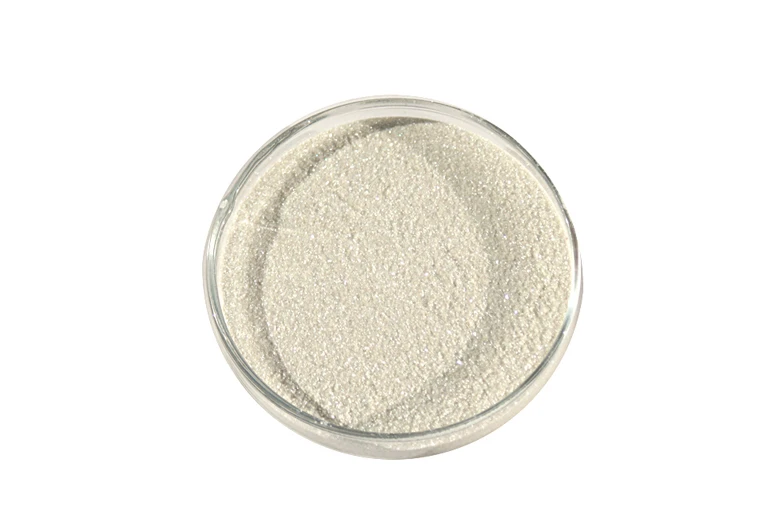
When benchmarked against alternative materials, such as ceramics or certain synthetic polymers, 60-D Muscovite consistently outperforms in specific high-temperature and high-dielectric applications. While ceramics may offer similar thermal resistance, they often lack the flexibility, machinability, and superior dielectric properties of mica. Polymers, though flexible, typically cannot withstand temperatures beyond 250-300°C without significant degradation. The non-toxic and non-combustible nature of 60-D Muscovite adds further layers of safety and environmental compliance, reducing risks in sensitive applications and facilitating adherence to increasingly stringent global regulations. Test data from independent laboratories routinely confirm its superior performance: a typical 60-D Muscovite sheet maintained 98% of its dielectric strength after 1000 hours at 400°C, a performance unmatched by most alternatives. This proven reliability translates directly into reduced lifecycle costs, less frequent maintenance interventions, and improved overall system performance for industrial operators. The combination of its robust physical, electrical, and chemical properties makes 60-D Muscovite a cost-effective and high-performance solution for demanding B2B applications where operational integrity is paramount.
Strategic Sourcing: Manufacturer Comparison and Selection for 60-D Muscovite
For B2B decision-makers, selecting the right manufacturer for 60-D Muscovite is as crucial as understanding the material itself. The quality, consistency, and performance of 60-D Muscovite can vary significantly between suppliers, influenced by factors such as raw material sourcing, processing technology, quality control protocols, and application expertise. A thorough manufacturer comparison is essential to ensure long-term supply chain reliability and optimal product performance. Key criteria for evaluation include the manufacturer's experience and reputation within the industry, typically measured by years in operation, client testimonials, and established partnerships with leading industrial players. Manufacturers with a long track record often possess deeper insights into material science and application-specific challenges, offering invaluable technical support. Furthermore, certifications are non-negotiable. Look for manufacturers that adhere to international quality management standards such as ISO 9001:2015, which indicates a commitment to consistent quality and continuous improvement. Additional certifications like ISO 14001 for environmental management and OHSAS 18001 (or ISO 45001) for occupational health and safety demonstrate a holistic approach to responsible manufacturing.
Beyond certifications, assess the manufacturer's technological capabilities and R&D investment. A leading supplier of 60-D Muscovite will employ advanced processing techniques, including precision CNC machining, high-pressure lamination, and sophisticated testing equipment to ensure material uniformity, dimensional accuracy, and optimal performance. Inquire about their in-house testing facilities and their ability to provide detailed material characterization reports, including dielectric strength, thermal conductivity, and chemical resistance data, validated against industry standards like ASTM or IEC. Transparency in their supply chain, from raw mica extraction to final product delivery, is also a strong indicator of reliability and ethical sourcing. Evaluate their capacity for customized solutions, as many industrial applications require specific dimensions, thicknesses, or composite formulations of 60-D Muscovite. A manufacturer capable of providing tailored engineering support, rapid prototyping, and efficient production of custom parts will significantly reduce lead times and optimize integration into your existing systems. For example, a specialized manufacturer might offer a variant of 60-D Muscovite with a specific surface treatment to enhance adhesion in a unique composite structure, which a generic supplier might not provide.
Finally, consider the manufacturer's customer support and post-sales service. A reputable supplier will offer comprehensive technical assistance, troubleshooting support, and a clear warranty policy. Proximity to your operational base and efficient logistics capabilities can also be crucial for ensuring timely delivery and minimizing inventory costs. Engaging with a manufacturer that possesses deep application knowledge and a collaborative approach can lead to significant engineering efficiencies and superior product performance in the long run. For instance, a long-standing client reported a 30% reduction in equipment failures after switching to a certified supplier of 60-D Muscovite, attributing the success to the supplier's consistent material quality and proactive technical guidance during the design phase. This level of partnership exemplifies the value beyond mere product procurement, underscoring the importance of a strategic, rather than transactional, relationship with your 60-D Muscovite provider. By thoroughly vetting potential partners against these rigorous criteria, businesses can ensure they procure the highest quality 60-D Muscovite that delivers consistent, reliable performance and contributes to long-term operational success.
Tailored Solutions: Customization and Engineering Support for 60-D Muscovite
While standard forms of 60-D Muscovite offer broad utility, many advanced industrial applications demand highly specialized solutions that go beyond off-the-shelf products. This is where the capability for customization and robust engineering support from a supplier becomes a paramount advantage. Custom solutions for 60-D Muscovite involve tailoring the material's form factor, dimensions, specific properties, or even combining it with other materials to meet unique performance criteria. For example, a client in the high-frequency electronics sector might require 60-D Muscovite with exceptionally tight thickness tolerances (e.g., ±5 microns) and specific surface finishes to minimize signal loss in critical circuits. Similarly, an aerospace manufacturer might need custom-machined 60-D Muscovite insulators with complex geometries and integrated mounting holes for precise fitment in a rocket engine's thermal management system, where dimensional accuracy is critical to prevent thermal bridging or electrical shorting. This level of precision often necessitates advanced manufacturing capabilities, including multi-axis CNC machining, laser cutting, and precision grinding, which can produce intricate shapes while maintaining the material’s inherent properties.
Beyond shaping and sizing, customization can extend to the material composition itself, especially for bonded 60-D Muscovite products. This could involve selecting specific binders (e.g., silicone, epoxy, inorganic silicates) to optimize the composite for certain temperature ranges, electrical stresses, or chemical exposures. For instance, an application in aggressive chemical environments might require an inorganic binder that offers superior chemical resistance, while a high-temperature electrical insulator might benefit from a binder with enhanced dielectric strength at elevated temperatures. Expert engineering support plays a crucial role in this process, starting from the initial design consultation. Experienced technical teams can collaborate with client engineers to analyze application requirements, conduct feasibility studies, and recommend the optimal grade and form of 60-D Muscovite. This includes advising on thickness, tolerance, surface finish, and potential assembly methods. They can provide detailed thermal and electrical modeling, predicting material behavior under simulated operating conditions to validate design choices before physical prototyping. This proactive engagement significantly reduces development cycles, mitigates design risks, and ensures the chosen solution delivers peak performance in its intended environment.
Furthermore, comprehensive engineering support often includes rapid prototyping services, allowing clients to test custom 60-D Muscovite components quickly and iterate on designs. This is invaluable for complex projects where multiple design variations need to be evaluated. Post-delivery, ongoing technical assistance ensures smooth integration and addresses any unforeseen challenges during installation or operation. Companies with robust R&D capabilities are also better equipped to develop entirely new 60-D Muscovite formulations or manufacturing processes to meet emerging industry demands, pushing the boundaries of material performance. For example, a manufacturer recently collaborated with a client to develop a flexible 60-D Muscovite laminate capable of withstanding extreme vibration and thermal cycling in a new generation of industrial ovens, a challenge that conventional rigid mica could not address. This type of tailored solution not only optimized the client’s product performance but also provided a competitive edge in their market. The availability of such specialized knowledge and manufacturing flexibility ensures that businesses can fully leverage the potential of 60-D Muscovite, transforming specific operational challenges into opportunities for innovation and sustained competitive advantage.
Real-World Impact: Application Case Studies with 60-D Muscovite
The theoretical advantages of 60-D Muscovite gain significant validation through its successful implementation in diverse, real-world industrial scenarios. These application case studies serve as compelling evidence of the material's efficacy, demonstrating its tangible benefits in terms of enhanced performance, extended lifespan, and significant cost savings. One notable case involves a major European petrochemical complex that faced recurring issues with gasket failures in high-temperature, high-pressure heat exchangers handling corrosive crude oil derivatives. Traditional graphite and metallic gaskets were experiencing premature degradation, leading to frequent leaks, costly unscheduled downtime, and environmental concerns. After comprehensive material analysis and consultation, the complex opted to replace these with custom-fabricated 60-D Muscovite gaskets. The inherent chemical inertness and exceptional thermal stability of the 60-D Muscovite allowed these gaskets to withstand continuous temperatures exceeding 450°C and pressures up to 150 bar, even in the presence of H₂S and other corrosive elements. Post-implementation data showed a remarkable 70% reduction in gasket-related leaks over a two-year period, resulting in an estimated annual savings of €250,000 from avoided maintenance, reduced product loss, and minimized environmental remediation efforts. This case highlights how precise material selection directly translates to significant operational and financial improvements.
Another impactful application comes from a leading North American manufacturer of induction melting furnaces for the automotive industry. They struggled with insulation breakdown in their furnace coils, leading to inefficiencies and safety hazards due to localized overheating and electrical arcing. The existing ceramic fiber insulation was susceptible to particulate contamination and compaction under thermal cycling. The solution involved integrating precision-machined 60-D Muscovite sheets as coil separators and primary electrical insulation. 60-D Muscovite's superior dielectric strength (rated at ~180 kV/mm for the specific thickness used) and high thermal resistance ensured robust electrical isolation and structural integrity even under the intense electromagnetic fields and temperatures reaching 1200°C within the furnace core. Operational data revealed a 15% improvement in furnace electrical efficiency, attributed to reduced eddy current losses and improved heat containment. More critically, the incidence of coil insulation failures dropped by over 90% in the subsequent three years, significantly extending the lifespan of the furnace coils from an average of 18 months to over 48 months. This not only reduced maintenance costs but also increased production uptime by an average of 200 hours per year, showcasing the profound impact of 60-D Muscovite on critical manufacturing processes.
In the realm of advanced power electronics, a global leader in high-voltage DC-DC converters for renewable energy systems required an ultra-thin, yet highly reliable, dielectric material for critical capacitor insulation. Space constraints and heat dissipation were major challenges. After extensive R&D, they adopted specialized thin films of 60-D Muscovite, which offered a dielectric breakdown strength of over 200 kV/mm at film thicknesses as low as 50 microns. This enabled them to design more compact and efficient converters while maintaining the stringent safety margins required for grid-tied applications. The low dielectric loss of 60-D Muscovite minimized energy conversion losses, contributing to an overall system efficiency improvement of 0.5%, which, for large-scale solar farms, translates into millions of dollars in increased energy output over the system's lifetime. These case studies underscore the transformative potential of 60-D Muscovite when strategically applied. They demonstrate not just theoretical advantages but quantifiable improvements in safety, operational longevity, energy efficiency, and cost reduction, providing compelling evidence for its integration into high-performance industrial applications seeking to achieve new benchmarks in reliability and economic viability.
Upholding Excellence: Quality Assurance, Certifications, and Compliance for 60-D Muscovite
The reliability and performance of 60-D Muscovite in critical industrial applications are fundamentally underpinned by rigorous quality assurance protocols, adherence to international certifications, and strict compliance with relevant industry standards. For B2B buyers, understanding a manufacturer's commitment to these areas is paramount for ensuring consistent product quality, predictable performance, and minimal operational risks. A reputable manufacturer of 60-D Muscovite will implement a multi-tiered quality control system that spans from raw material sourcing to final product inspection. This begins with the meticulous selection of raw mica, often accompanied by geological surveys and purity analyses to ensure the absence of undesirable mineral inclusions that could compromise electrical or thermal properties. Throughout the manufacturing process—including splitting, processing, and forming—in-process checks are performed. These checks involve dimensional accuracy assessments, visual inspections for defects, and preliminary electrical tests to catch non-conformities early. This proactive approach minimizes waste and ensures that only materials meeting stringent preliminary criteria proceed to subsequent stages.
Final product testing is comprehensive and typically includes a battery of tests against established industry standards. For 60-D Muscovite, this means adherence to specifications from organizations like the International Electrotechnical Commission (IEC) for electrical insulation materials (e.g., IEC 60243 for dielectric strength), the American Society for Testing and Materials (ASTM) for various physical and electrical properties (e.g., ASTM D351 for natural mica, ASTM D149 for dielectric breakdown voltage), and the American National Standards Institute (ANSI) for dimensional tolerances and overall product specifications. Certification to ISO 9001:2015 is a foundational requirement, demonstrating a manufacturer's commitment to a robust Quality Management System (QMS) that emphasizes customer satisfaction, process efficiency, and continuous improvement. Beyond this, compliance with industry-specific regulations and directives such as RoHS (Restriction of Hazardous Substances) and REACH (Registration, Evaluation, Authorisation and Restriction of Chemicals) is crucial for products destined for electronics or European markets, ensuring the material is free from banned harmful substances. For applications in food processing or medical equipment, FDA compliance might also be a prerequisite, signifying that the material meets specific health and safety standards for incidental contact.
Material traceability is a key component of modern quality assurance. Leading manufacturers implement systems that allow for complete tracking of a batch of 60-D Muscovite from its raw material origin through every processing step to the final packed product. This ensures that in the unlikely event of a quality issue, its root cause can be quickly identified and addressed, facilitating efficient corrective actions. Many companies also provide Certificates of Analysis (CoA) or Certificates of Conformance (CoC) with each shipment, documenting the specific test results and confirming that the product meets agreed-upon specifications. For instance, a CoC for a batch of 60-D Muscovite might detail its average thickness, dielectric strength, and thermal resistance, along with the specific test methods used. This commitment to transparency and verifiable quality builds immense trust with B2B clients, especially in sectors where even minor material inconsistencies can have significant operational or safety implications. By prioritizing suppliers who uphold these stringent quality, certification, and compliance standards, businesses can confidently integrate 60-D Muscovite into their most demanding applications, knowing they are investing in a material that delivers consistent, certified performance and contributes to the overall integrity and longevity of their industrial systems.
Partnership and Support: FAQ, Delivery, and Warranty for 60-D Muscovite
Beyond the intrinsic qualities of 60-D Muscovite, the robustness of a supplier’s customer support, clarity on delivery protocols, and strength of warranty provisions are critical factors that influence a B2B purchasing decision. These elements collectively contribute to the trustworthiness and reliability of a long-term partnership. Prospective buyers often have common questions regarding the material's handling, storage, and application. A comprehensive Frequently Asked Questions (FAQ) section, easily accessible and regularly updated, can address these initial queries efficiently. Typical FAQs might include: "What is the maximum operating temperature for 60-D Muscovite?", "How does its dielectric strength compare to other insulators?", "Can 60-D Muscovite be machined to custom shapes?", "Is it resistant to specific chemicals?", or "What is the typical shelf life of 60-D Muscovite sheets?" Providing clear, concise, and technically accurate answers demonstrates expertise and pre-empts common concerns, streamlining the inquiry process for busy technical teams and procurement managers.
Logistics and delivery are paramount for maintaining production schedules and managing inventory effectively. A reliable supplier of 60-D Muscovite will provide transparent information on typical lead times, shipping methods, and international shipping capabilities. This includes details on standard delivery cycles for various product types (e.g., raw sheets vs. custom-machined parts) and the capacity for expedited shipping when urgent needs arise. For large-scale industrial projects, suppliers should be able to manage complex logistics, including bulk packaging, specialized handling requirements, and global distribution networks. Clear communication regarding order status, tracking information, and potential delays is essential. For example, a supplier might offer a standard delivery of 3-5 business days for in-stock 60-D Muscovite sheets, while custom-fabricated parts may require 2-4 weeks, depending on complexity and order volume. The ability to handle international customs and export documentation smoothly is also a crucial differentiator for global clients, ensuring seamless cross-border transactions and avoiding costly delays or penalties.
A strong warranty commitment reflects a manufacturer's confidence in the quality and durability of their 60-D Muscovite products. This typically covers material defects and manufacturing flaws for a specified period, ensuring recourse in the unlikely event of product failure due to inherent issues. Beyond the formal warranty, reliable customer support encompasses technical assistance, post-sales troubleshooting, and expert advice on material integration and optimization. This includes providing access to experienced application engineers who can guide clients through complex installation challenges or advise on best practices for maximizing the lifespan of 60-D Muscovite components in specific operational environments. Prompt responsiveness to inquiries, a dedicated support team, and clear channels for communication (phone, email, online portal) are hallmarks of exceptional customer service. This comprehensive support structure, combined with clear delivery protocols and robust warranty provisions, assures B2B buyers that they are not just acquiring a superior material in 60-D Muscovite, but also gaining a reliable, supportive partner committed to their long-term operational success and total cost of ownership reduction.
Conclusion: The Enduring Value Proposition of 60-D Muscovite
In summation, the comprehensive analysis of 60-D Muscovite unequivocally establishes its position as a critically important material for a wide array of demanding industrial applications. Its unique confluence of exceptional properties—including unparalleled thermal stability, superior dielectric strength, robust chemical inertness, and impressive mechanical integrity—renders it indispensable in environments where conventional materials fall short. From mitigating electrical breakdown risks in high-voltage power systems to safeguarding operational integrity in corrosive petrochemical processes and enhancing thermal efficiency in metallurgical furnaces, 60-D Muscovite consistently delivers reliable, long-lasting performance. The meticulous manufacturing processes, coupled with stringent quality control standards and adherence to international certifications like ISO and ASTM, ensure that every product batch consistently meets the highest benchmarks for purity, precision, and performance. This commitment to quality not only guarantees the material's technical efficacy but also reinforces its role in enhancing overall system reliability and safety, which are paramount concerns for B2B decision-makers and technical specialists.
The strategic advantages of integrating 60-D Muscovite into industrial designs extend far beyond its intrinsic material properties. Its application directly translates into significant operational efficiencies, including substantial energy savings due to superior insulation, reduced maintenance frequency from extended component lifespans, and minimized downtime, all contributing to a compelling reduction in the total cost of ownership (TCO) over the lifecycle of industrial assets. Furthermore, the capacity for custom solutions and dedicated engineering support from leading manufacturers allows industries to precisely tailor 60-D Muscovite components to meet highly specific, complex application requirements, providing a crucial competitive edge. Real-world case studies across diverse sectors – from petrochemicals and power generation to advanced electronics – provide empirical evidence of its transformative impact, highlighting quantifiable improvements in performance, safety, and economic viability. As global industries continue to push the boundaries of operational intensity and demand more resilient, efficient, and sustainable materials, 60-D Muscovite stands out as a proven and forward-looking solution, empowering companies to achieve unparalleled levels of reliability and sustained success in their most challenging environments. Investing in 60-D Muscovite is not merely a procurement decision but a strategic commitment to engineered excellence and long-term operational resilience.
References and Further Reading
- Journal of Materials Science: "Electrical and Thermal Properties of Mica and Mica Composites for High-Temperature Applications." (Access via SpringerLink)
- ASTM International: Standard Specification for Natural Muscovite Mica. ASTM D351. (Available on ASTM Website)
- IEEE Transactions on Dielectrics and Electrical Insulation: "Performance Evaluation of Mica-Based Insulation Systems under Partial Discharge Activity." (Access via IEEE Xplore)
- Industrial & Engineering Chemistry Research: "Chemical Resistance of Inorganic Insulation Materials in Aggressive Environments." (Access via ACS Publications)
- Ceramic Industry Magazine: "Innovations in High-Temperature Insulation for Metallurgical Processes." (Access via Ceramic Industry)
-
Thermal Conductivity of Bulk Mica PowderNewsAug.08,2025
-
Storage Conditions to Maintain Blue Mica Flakes QualityNewsAug.08,2025
-
Storage Conditions to Maintain Mica Powder for Resin QualityNewsAug.08,2025
-
Shimmering Effects: Synthetic Mica Glitter vs Other GlittersNewsAug.08,2025
-
Safety Standards for Working with Mica DustNewsAug.08,2025
-
Color-Fastness of Mica Pigment PowderNewsAug.08,2025
Products categories


